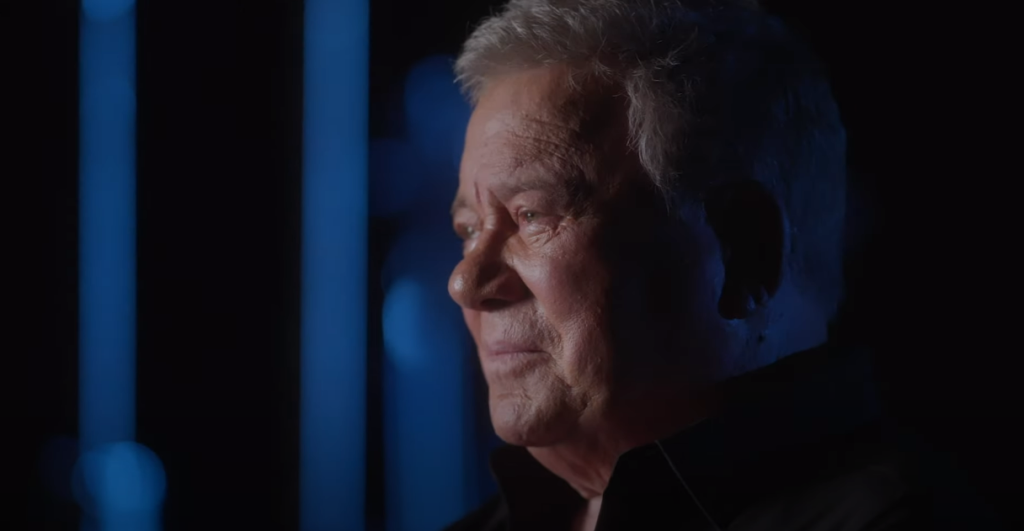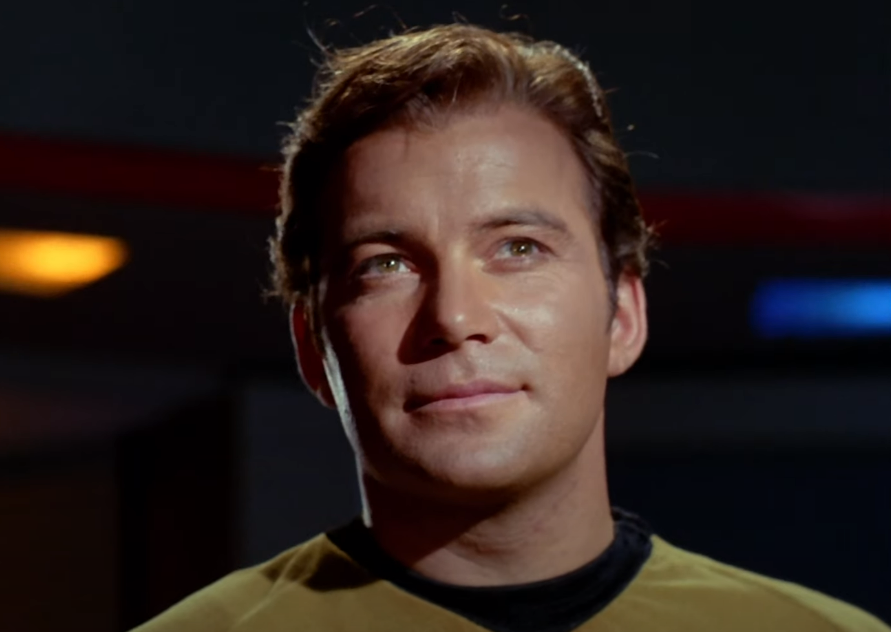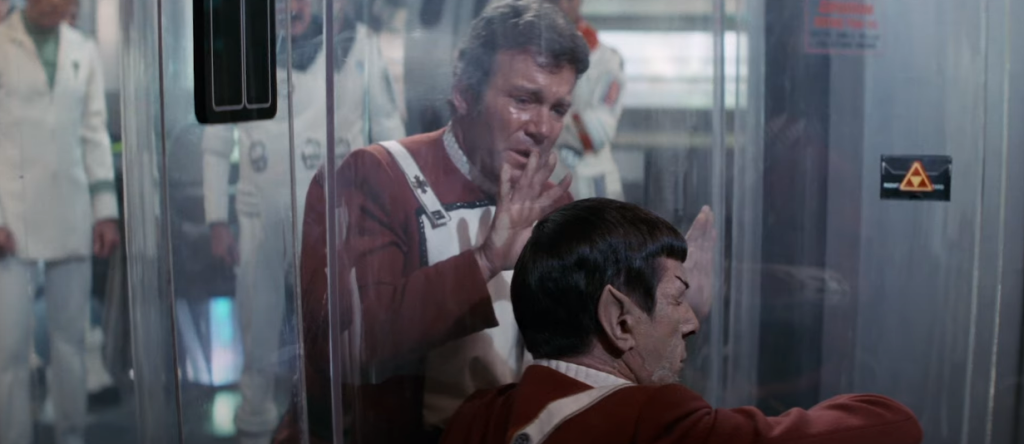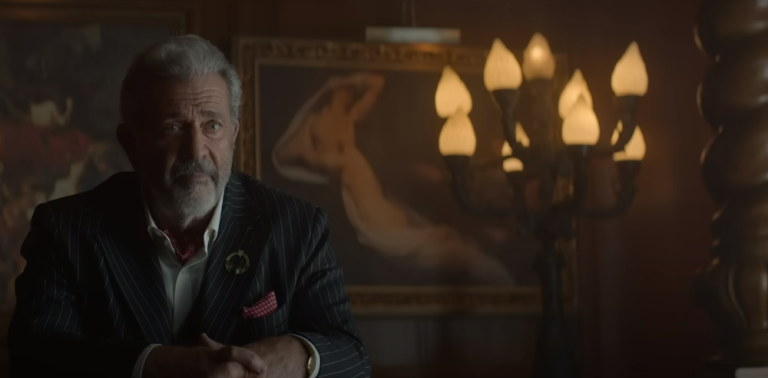

William Shatner, known for his role as Captain Kirk, opens up about his fear of being alone in “You Can Call Me Bill.” This fear, he says, has influenced every aspect of his life, both on and off the screen. While as Captain Kirk he explores the universe, in reality, he grapples with loneliness and mortality. In front of filmmaker Alexandre O. Phillippe, Shatner candidly discusses these anxieties, revealing a vulnerable side beneath his charming persona.
The camera captures William Shatner in a stream-of-consciousness monologue style. He freely shares thoughts ranging from his childhood connections with nature to his acting philosophy. While the film mostly lets him ramble, his reflections become increasingly introspective and poetic, though occasionally light on substance.

In “You Can Call Me Bill,” William Shatner’s complex relationship with fame is on display, often feeling like a parody of his own career. He reflects on his early acting influences, Laurence Olivier and Marlon Brando, which mirror his balancing act between Shakespearean seriousness and Method acting. Alexandre O. Phillippe cleverly showcases this dichotomy through clips of Shatner’s diverse roles, from Westerns in the ’50s to his humorous commercials, highlighting his ability to oscillate between grandeur and levity throughout his career.
In the middle of it all is Captain James T. Kirk, a pop culture icon once scorned by Shatner himself (“Get a life!” he famously told Trekkies), but now embraced. Shatner now appreciates the message of “Go boldly,” urging us all to pursue our dreams with full commitment instead of merely waiting. Even at 90, when he ventured into space aboard Jeff Bezos’ Blue Origin rocket, he couldn’t entertain the thought of backing out. After all, he’s Captain Kirk.

It’s difficult to distinguish between James T. Kirk and William Shatner, with Alexandre O. Phillippe’s material highlighting their similarities. Shatner acknowledges his limitations as a practical Canadian actor who never lets his work infiltrate his personal life. For Shatner, Kirk is like an avatar, closely reflecting who he is. This connection is evident in “Star Trek V: The Final Frontier,” where Shatner/Kirk grapples with life’s hardships as an integral part of oneself.
While Shatner’s expressions can be circular and repetitive, he maintains a troubadour-like honesty. He meanders through topics, from his childhood marked by loss to philosophical musings on life and death. His reflections range from quoting Chekov’s “The Seagull” to lamenting humanity’s neglect of nature, which he sees as small miracles being squandered through pollution and shortsightedness.

Shatner presents his thoughts with fervent yet understated conviction, speaking in his distinctive staccato style, which he claims not to notice despite its widespread portrayal in pop culture. While he may struggle to define “Shatnerian,” his essence is captured effortlessly on camera by Phillippe, appearing so natural that it becomes almost imperceptible.
At ninety, Shatner remains vibrant, with lively eyes and a voice barely affected by years of work. Yet, he’s keenly aware of his mortality, turning “You Can Call Me Bill” into a kind of self-reflective farewell. He openly discusses the fleeting nature of life, whether in the film or during live events where he ponders existence and the universe. From his exhilarating trip to outer space to his financial struggles after “Star Trek,” Shatner confronts both his highest highs and lowest lows with candid reflection.

Philippe mostly observes, allowing Shatner to take center stage. The only interruption comes when Philippe expresses his hope for Shatner’s return tomorrow. Overall, “You Can Call Me Bill” convincingly argues for the continued presence of our beloved Captain Kirk.
| Aspect | Summary |
|---|---|
| Theme: Fear of Being Alone | William Shatner discusses his fear of loneliness and mortality, which has influenced his life on and off-screen, contrasting with his adventurous Captain Kirk persona. |
| Stream-of-Consciousness Style | Shatner freely shares introspective and poetic reflections, though occasionally lacking substance, captured in a stream-of-consciousness monologue style. |
| Complex Relationship with Fame | Shatner’s career, including his iconic role as Captain Kirk, is explored as a parody of his own fame, showcasing his ability to balance grandeur and levity throughout his career. |
| Integration of Captain Kirk | The intertwining of Shatner and Captain Kirk’s personas is evident, with Shatner embracing the message of “Go boldly” and embodying Kirk’s adventurous spirit, even in his later years. |
| Troubadour-like Honesty | Shatner’s expressions are marked by honesty and introspection, meandering through topics such as childhood memories and philosophical musings on life and nature. |
| Conviction in Expression | Shatner delivers his thoughts with fervent yet understated conviction, despite claiming not to notice his signature staccato style, effectively capturing his essence on camera. |
| Awareness of Mortality | At ninety, Shatner remains vibrant but reflects on mortality, making “You Can Call Me Bill” a reflective farewell. He openly discusses life’s fleeting nature and personal struggles. |
| Observational Filmmaking Style | Filmmaker Alexandre O. Phillippe mainly observes, allowing Shatner to take the lead, with minimal interruptions, creating a compelling narrative around Shatner’s persona. |






